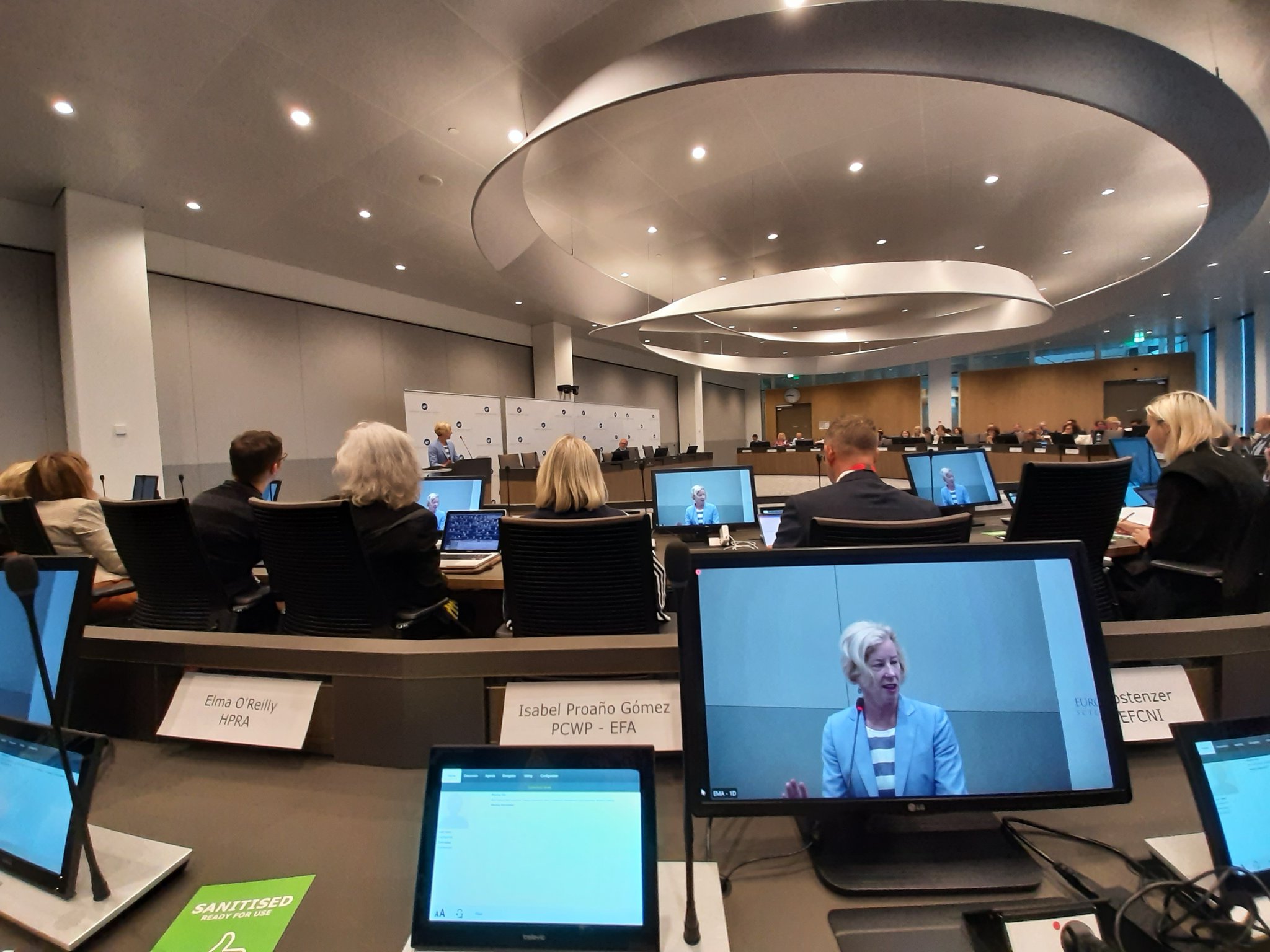
In September, the European Medicines Agency (EMA) organised the first in-person multi-stakeholder workshop since the pandemic on a crucial topic for allergy, asthma and COPD patients: the inclusion of their patient experience in medicines development and regulatory decision-making.
As science and health literacy evolves, the development of medicines is also moving beyond the mere life-saving clinical interventions and towards an approach that also takes into account quality of life outcomes. The impact that medicines have in our lives is of particular importance for people living with chronic conditions such as allergy and respiratory disease. In fact, the intake, format and adverse effects of a given medicine can really impact the treatment and life choices of a patients.
During the workshop, expert speakers presented to an audience composed of the Healthcare Professionals Working Party (HCPWP) and the Patients and Consumers Working Party (PCWP) including EFA, as well as other stakeholders, their findings and recommendations on how to integrate the patients’ input into the development and regulatory work around medicines.
EFA representative Isabel Proaño participated in the workshop and highlighted some takeaways for patients:
- Patient experience data should not only include quantitative data such as patient engagement, patient preferences and patient reported outcomes, but also qualitative input such as informed recommendations from structured patient groups. This could for example take the form of a structured discussions over the risk and benefits of a medicine
- Patient experience data and engagement should be carefully design for the target population of the medicine, especially when dealing with children, the elderly or physically or mentally impaired groups
- The ongoing digitalisation is a great opportunity to streamline real-world patient experience within trials and beyond. There is however a need to discuss who should be digitally collecting that information: the agency or any other public authority? The healthcare professionals? The companies conducting the trials? The patient organisations informing the development and ultimately using the medicine?
- There is an urgent need to develop EU guidelines with criteria and a logic on what would be ultimately considered valid patient experience data, as only one third of the data presented today has been treated as correct, pertinent of useful for the regulatory processes
- There will not be a single patient experience data collection tool or methodology, but rather a set of core criteria and issues coupled with more ad hoc indicators and ways to collect those indicators
- The obligation to include patient experience data in medicinal product development plans is something that could be included in the upgoing revision of the EU pharmaceutical legislation
EFA will closely follow and inform the discussions on this crucial work for the development of medicines in Europe.
Patient experience data workshop presentations and recording of the sessions are available in the EMA website.